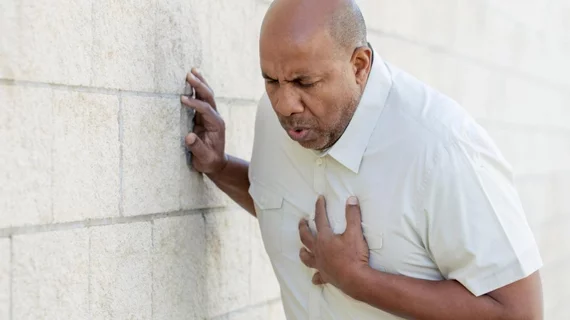Heart attack care during a pandemic: Medical societies share COVID-19 recommendations
The COVID-19 pandemic has changed patient care in countless ways, but percutaneous coronary intervention (PCI) remains the recommended standard of care for ST-segment elevation myocardial infarction (STEMI) patients. Fibrinolysis can also be considered if PCI is not an option due to delays or a lack of resources.
That’s the word from three medical societies—the American College of Cardiology, Society for Cardiovascular Angiography and Interventions, and American College of Emergency Physicians—that published a consensus statement on treating heart attacks in the age of COVID-19.
The 33-page document covers a variety of clinical presentations and treatment options, emphasizing the importance of wearing appropriate personal protection equipment (PPE).
“Patients with cardiovascular disease who develop COVID-19 have a higher risk of mortality,” according to the statement. “However, it is important to emphasize that the majority of patients who need cardiovascular care for the management of ischemic heart disease, peripheral vascular or structural heart disease may not be infected with COVID-19. Further, as we prepare for the care of patients with COVID-19 related illness, we also need to ensure that the overall patient population continues to benefit from the tremendous advancements in cardiovascular care made over the past three decades.”
Fear of contracting COVID-19 has kept many heart attack and stroke patients from seeking care in recent weeks, and the consensus statement specifically addressed that trend. Healthcare providers must inform the general public that exposure to the virus is being minimized, the authors explained, and patients need to know that they can’t delay seeking medical attention when they need it.

